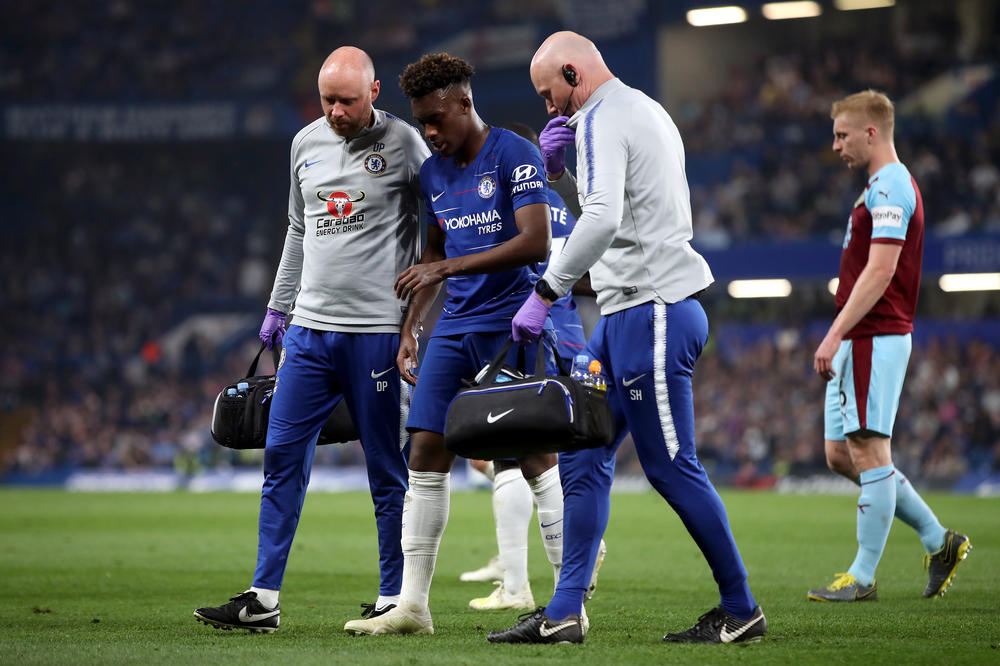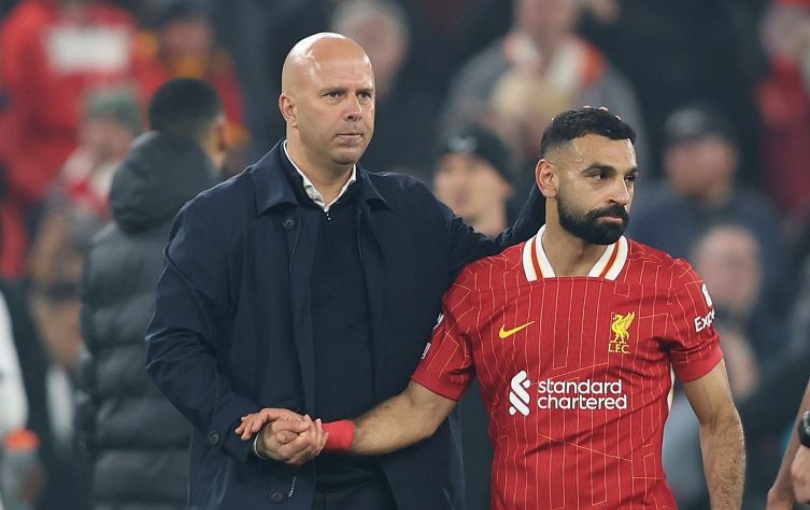Sports surgeon believes Hudson-Odoi will require Achilles operation

Callum Hudson-Odoi is likely to need surgery to repair his ruptured Achilles tendon, according to an orthopaedic surgeon.
The 18-year-old Chelsea midfielder revealed his season is over as a result of the injury he suffered against Burnley on Monday evening.
The Blues are yet to confirm how the England international’s treatment will proceed, with a variety of options available depending upon the nature of the damage, but he faces a lengthy spell on the sidelines regardless.
Professor Paul Lee, specialist in sports, regenerative and orthopaedic surgery at the London Sports and Orthopaedic Clinic, says it is “very common” for athletes to require operations to fix such injuries.
He said: “Achilles tendon rupture is also called heel cord rupture and is a relatively common sports injury. The Achilles tendon is one of the strongest tendons in the body and it can withstand a lot of stress.
“Certain sports, such as football, require a lot of running, starting, stopping and change of direction. This will load the Achilles tendon with a huge amount of force.
“Depending on the grade of the rupture and where the Achilles tendon is ruptured, surgical treatment may or may not be necessary. However, for a sportsman, it is very common that surgical repair is recommended.
Get FourFourTwo Newsletter
The best features, fun and footballing quizzes, straight to your inbox every week.
“If you imagine, at the back of your heel is a very strong elastic band. When this elastic band ruptures, you would like to put it back together to recreate the tension within the band.
“However, there are many different studies reporting that with conservative treatment, i.e. without surgery or by using heel wedges, the result is acceptable.
“Looking at the literature, it also suggests that if the patient is treated with conservative management, they are likely to go back to pre-injury level and have a higher rate of re-rupture.”
The approach taken with Hudson-Odoi will be governed largely by the extent and specific location of the injury, but Professor Lee suggested that a hybrid percutaneous repair – a form of keyhole surgery – is a common approach taken with elite athletes.
He said: “In my opinion as a regenerative medicine doctor, as well as orthopaedic surgeon, the goal following this type of injury is to recreate the mechanical strength as well as allowing biological repair.
“At the end of the day, it is the body that will heal, it is not the sutures that will hold the heel cord in the long run.
“Therefore, a hybrid percutaneous technique is very useful in managing high-level athletes for this type of injury.
“With a percutaneous approach, under the guidance of ultrasound, the Achilles tendon can be approximated together. This will recreate the biomechanical environment for the heel cord as well as preserving the biological environment with a very small chance of infection, and will optimise recovery.
“This approach has been commonly used in France and has gained great popularity. Although it is never possible to predict a positive outcome 100 per cent of the time, this percutaneous approach makes mechanical, as well as biological, sense.”
FourFourTwo was launched in 1994 on the back of a World Cup that England hadn’t even qualified for. It was an act of madness… but it somehow worked out. Our mission is to offer our intelligent, international audience access to the game’s biggest names, insightful analysis... and a bit of a giggle. We unashamedly love this game and we hope that our coverage reflects that.

